 Sichuan money wall for dividend payment
Sichuan money wall for dividend payment Li Na crashes Belinda Bencic in 2nd round at Australian Open
Li Na crashes Belinda Bencic in 2nd round at Australian Open
 Shocking moments when PLA's weapons open fire
Shocking moments when PLA's weapons open fire Famous Lanzhou beef noodles
Famous Lanzhou beef noodles Armed Police hold anti-terrorism drill in SE China's Xiamen
Armed Police hold anti-terrorism drill in SE China's Xiamen Harbin Int'l Ice and Snow Festival opens
Harbin Int'l Ice and Snow Festival opens 'Jin' named the word of the year by cross-strait netizens
'Jin' named the word of the year by cross-strait netizens Chinese scientific expedition goes to build new Antarctica station
Chinese scientific expedition goes to build new Antarctica station
 Chinese naval escort fleet conducts replenishment in Indian Ocean
Chinese naval escort fleet conducts replenishment in Indian OceanCOLOMBO, Jan. 16 -- Chinese Ambassador to Sri Lanka Wu Jianghao on Thursday vehemently condemned the Japanese prime minister's visit to the controversial war shrine and insisted ignoring the event was condoning Japan's militant history.
The Yasukuni Shrine is a "spirit tool" and symbol of Japanese militarism in its war of aggression and colonial rule during World War II (WWII), Wu told local media in an interview.
"To date, the shrine still does its utmost to deny and whitewash the history of Japan's aggression. In 1978, the Yasukuni Shrine started to honor 14 Class-A war criminals of WWII. As we all know, those criminals are the primary instigators and perpetrators of Japan's aggressive expansion and colonial rule in WWII."
"During that period, their evil deeds brought grave disasters to the Asian Pacific and Indian Ocean countries and their peoples, " he said, adding that Sri Lanka too had two of its ports bombed during WWII.
Wu also blamed selected right wing Japanese politicians as well as Prime Minister Shinzo Abe for failing to reverse the reputations of the war criminals and even beautify the horrific crimes committed by them.
"The behavior of Japanese right wing politicians fully exposed their resent of the just outcome of WWII. Their ostensible remorse is reluctant under the international pressure," Wu noted.
"The same politicians, occasionally express apologies, but immediately take actions to reverse the verdict. Nothing is capable of exceeding this kind of hypocrisy and fickleness. The past is connected to the present and future."
China has attempted many times and through many gestures to forgive the Japanese for their past crimes but leaders such as Abe continue to stall progress on China-Japan relations through their irresponsible and callous actions that do not take the sentiments of their neighbors into account, the ambassador added.
"Prime Minister Abe has been playing a double game in China- Japan relations ever since he took office. On one hand, he claims that he would like to improve relations with China. But at the same time, he wantonly challenged China's core interest, trample on the red line of the bilateral ties and hurt the feelings of Chinese people."
"Judging from his moves, Prime Minister Abe's claim that he attached importance to developing Japan-China relations lacks credibility. In fact, it is Abe himself who shuts the door of dialogue with Chinese leaders. If Abe really wants to improve Japan's relations with its neighboring countries, he must realize his errors and mend his way."
Wu emphasized that Japan should abstain from actions that could be seen as a provocation by other countries including China.
 In photos: Ten 'tuhao' devices in 2013
In photos: Ten 'tuhao' devices in 2013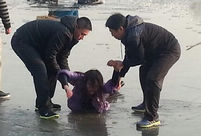 College students saved from an ice hole by brave citizens
College students saved from an ice hole by brave citizens Gallery: Top 10 box office hits in 2013
Gallery: Top 10 box office hits in 2013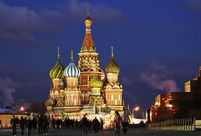 Beautiful churches around the world
Beautiful churches around the world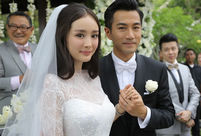 Yang Mi, Hawick Lau hold wedding in Bali
Yang Mi, Hawick Lau hold wedding in Bali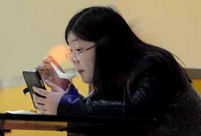 'Phubbing' people seen everywhere
'Phubbing' people seen everywhere World's biggest snack shop in China
World's biggest snack shop in China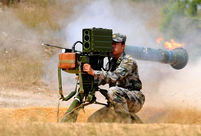 Shocking moments when PLA's weapons open fire
Shocking moments when PLA's weapons open fire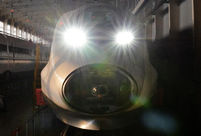 World's fastest train CRH380A assembled in E China
World's fastest train CRH380A assembled in E China Mechanized infantry brigade in tactical drill
Mechanized infantry brigade in tactical drill Sichuan money wall for dividend payment
Sichuan money wall for dividend payment 40-day spring travel rush starts on Jan. 16
40-day spring travel rush starts on Jan. 16 Charity exhibition raises money for panda protection
Charity exhibition raises money for panda protection China's national pole dancing to play 'The Butterfly Love'
China's national pole dancing to play 'The Butterfly Love'  Weekly sports photos
Weekly sports photosDay|Week|Month